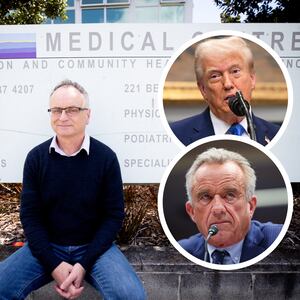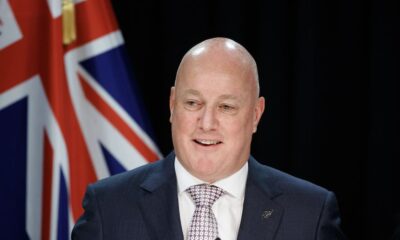Health
Health Experts Condemn Trump’s Claims Linking Paracetamol to Autism

A recent statement by former US President Donald Trump linking paracetamol, also known as Tylenol in the United States, to an increased risk of autism during pregnancy has sparked widespread condemnation from health experts. This assertion, made during an event with controversial health secretary Robert F. Kennedy Jr., has raised serious concerns among medical professionals regarding its potential to mislead the public and jeopardize maternal and child health.
Dr. Bryan Betty, chair of General Practice NZ, expressed indignation over the Trump administration’s claims, calling them unfounded and dangerous. He emphasized that this kind of misinformation threatens to reverse progress in public health and could lead to harmful consequences for pregnant women and their unborn children. “It verges on outrageous what’s actually happened here,” Dr. Betty told Herald NOW. He noted that there is no credible scientific evidence to support the assertions made by Trump and Kennedy.
The medical community has responded strongly to these claims, with Dr. Betty highlighting that “every credible medical body across the world has come out and said there is no foundation to this claim.” He condemned the resurgence of what he described as mainstream science denialism, which could hinder informed decision-making among expectant mothers.
Concerns about paracetamol use during pregnancy have surfaced in recent years, but the consensus among medical experts remains that when used as directed, the medication is generally safe for expecting mothers. The World Health Organization and multiple national health organizations have consistently found no substantial evidence linking paracetamol to autism or other developmental disorders in children.
Trump’s comments have reverberated through the global medical establishment, prompting calls for heightened public awareness about the importance of relying on scientifically validated information. The potential impact of such misinformation could lead pregnant women to avoid the medication unnecessarily, risking their health and that of their babies.
As the discussion continues, health experts stress the importance of consulting with qualified medical professionals regarding medication use during pregnancy. They urge the public to remain vigilant against misinformation and to rely on evidence-based practices for health decisions.
The implications of Trump’s remarks extend beyond health; they reflect a broader issue of trust in scientific expertise and the challenges faced by the medical community in combating unfounded claims. The responses from health authorities worldwide serve as a reminder of the critical role that accurate information plays in safeguarding health.
-

 Sports2 months ago
Sports2 months agoNetball New Zealand Stands Down Dame Noeline Taurua for Series
-

 Entertainment2 months ago
Entertainment2 months agoTributes Pour In for Lachlan Rofe, Reality Star, Dead at 47
-

 Entertainment4 weeks ago
Entertainment4 weeks agoNew ‘Maverick’ Chaser Joins Beat the Chasers Season Finale
-

 Sports6 days ago
Sports6 days agoEli Katoa Rushed to Hospital After Sideline Incident During Match
-

 Sports2 months ago
Sports2 months agoSilver Ferns Legend Laura Langman Criticizes Team’s Attitude
-

 Politics1 month ago
Politics1 month agoNetball NZ Calls for Respect Amid Dame Taurua’s Standoff
-

 Entertainment2 months ago
Entertainment2 months agoKhloe Kardashian Embraces Innovative Stem Cell Therapy in Mexico
-

 Sports4 days ago
Sports4 days agoJamie Melham Triumphs Over Husband Ben in Melbourne Cup Victory
-

 World3 months ago
World3 months agoPolice Arrest Multiple Individuals During Funeral for Zain Taikato-Fox
-

 Sports3 months ago
Sports3 months agoGaël Monfils Set to Defend ASB Classic Title in January 2026
-

 Entertainment1 month ago
Entertainment1 month agoTyson Fury’s Daughter Venezuela Gets Engaged at Birthday Bash
-

 Sports1 month ago
Sports1 month agoHeather McMahan Steps Down as Ryder Cup Host After Controversy





















